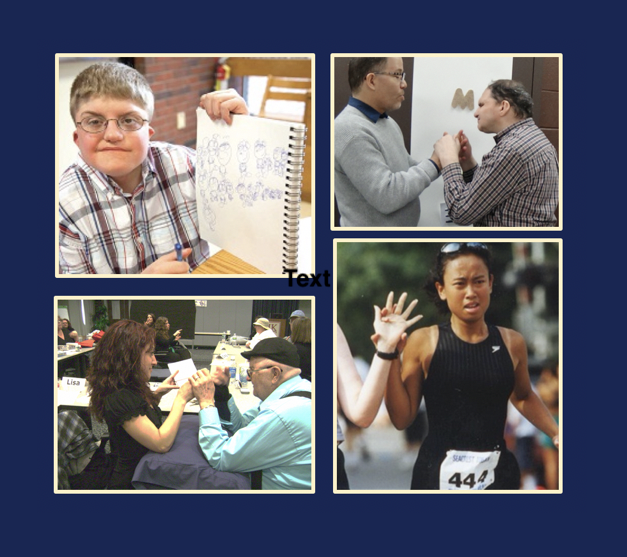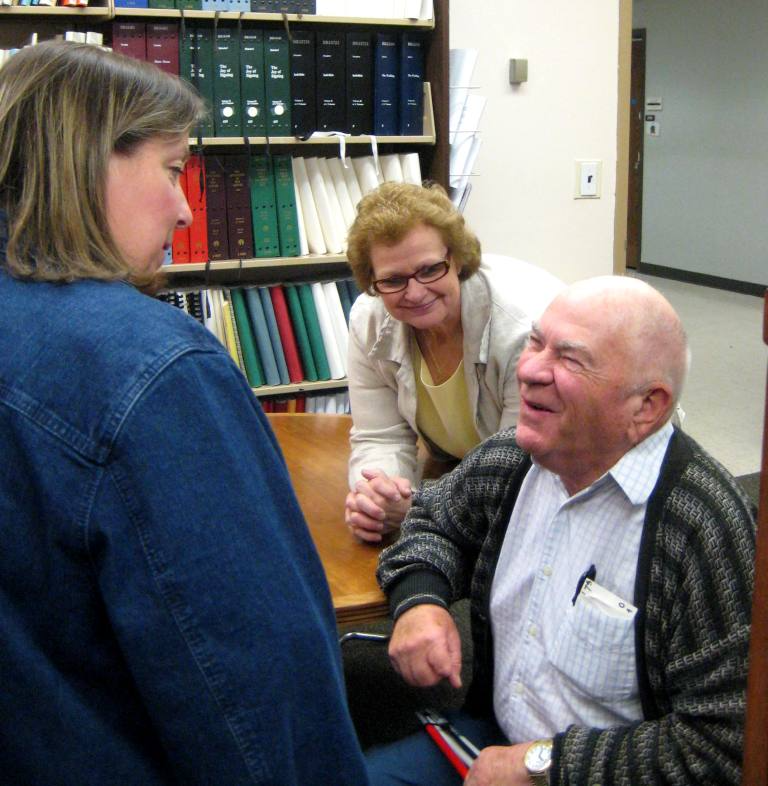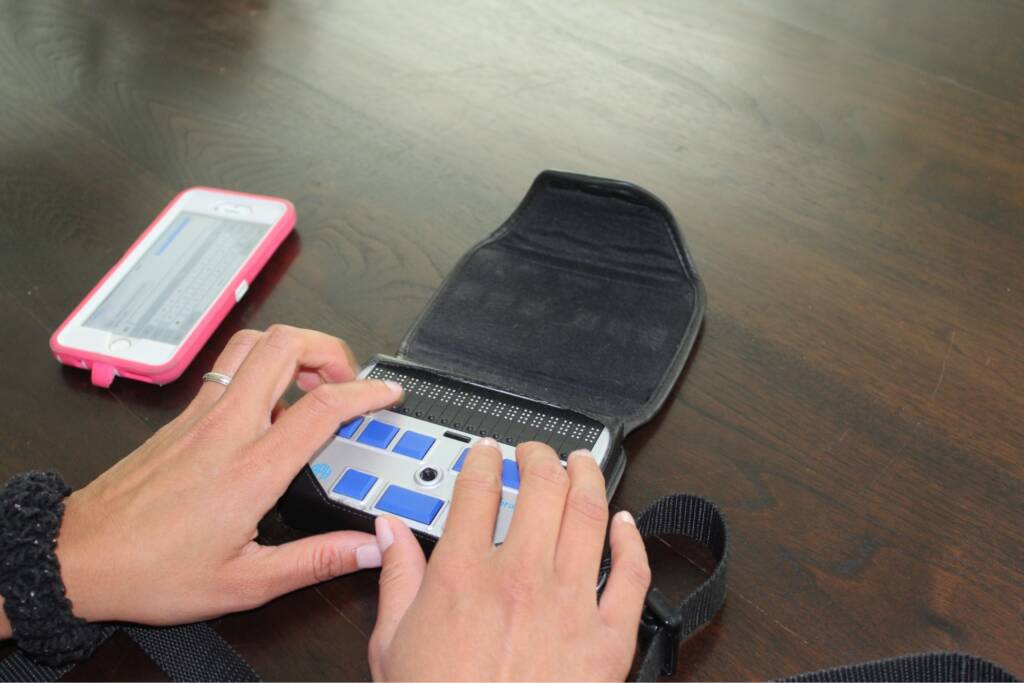Welcome to the Helen Keller National Center on-line training series “Confident Living: A Course for Individuals Supporting Older Adults with Combined Vision and Hearing Loss.”
Senior citizens, people age 55 and over, make up the largest group of people who have a combined vision and hearing loss and are considered to be DeafBlind. As people live longer, there is a greater chance of losing some vision and hearing to a point when communication and independence is significantly impacted. This loss of freedom and connection with loved ones can be devastating to those entering their “golden” years. Yet, many of these seniors remain un-served or underserved, oftentimes because they don’t think of themselves as “DeafBlind.”
Whether living at home or in a senior care facility, this course provides useful information to seniors, their family members, senior facility staff, medical professionals and other related professionals who care for them. The course is packed with insights, strategies and resources that will support seniors who are DeafBlind in leading a fulfilling and high quality life.
This course began as a small on-site program at the Helen Keller National Center. Once or twice a year, a group of 6-9 seniors with a combined vision and hearing loss came together from across the country to learn how they could maintain their independence and to share their stories of struggles and triumphs. The program was so well received that it was replicated in several places across the U.S. to serve local populations. The senior participants oftentimes commented that they wished the information could be shared with a wider audience. This online course is an attempt to share this useful information with seniors and those who care for them across the U.S. and beyond. What this course lacks is the ability to allow seniors who are DeafBlind to interact with each other and feel connected to peers who are experiencing similar struggles. We recommend that seniors and their family or caregivers seek out other seniors with a combined vision and hearing loss to share insights, stories and support, if possible.
The online course can be used in several ways: as a self-study course, with a small group of family or colleagues, as a supplement to a university course or as a requirement for senior care facility or medical staff.
The course is divided into 9 modules. It is recommended that the user complete all of the modules and that the modules be followed in the order listed on the platform. However, it is possible to complete individual modules if you feel you do not need the entire course. If you do change the order of the modules or decide not to complete one or more of the modules, please be aware that there may be references in the module you choose to materials that are contained in a different module. The 9 modules include:
-
- Understanding Hearing Loss
-
- Understanding Vision Loss
-
- Orientation and Mobility (O&M)
-
- Communication
-
- Support Service Providers and Volunteers
-
- Leisure and Recreation
-
- Independent Living
-
- Self-Advocacy and Maintaining Independence
-
- Elder Law
This course is approved to earn 6 CRC credits through the VR Development Group. Please contact VRDG at info@vrdevelopmentgroup.com for information. In addition, the course is also approved for 6 ACVREP credit hours.
Additional Courses

Employment
Working with Individuals who are DeafBlind: A Course for Vocational Counselors and Other Professionals
CRC CE Hours: 2.0
ACVREP CE Hours: 2.0

Introduction to DeafBlind
Overview of Etiologies and Visual Conditions Commonly Associated with Deaf-Blindness
ACVREP CE Hours: 1

